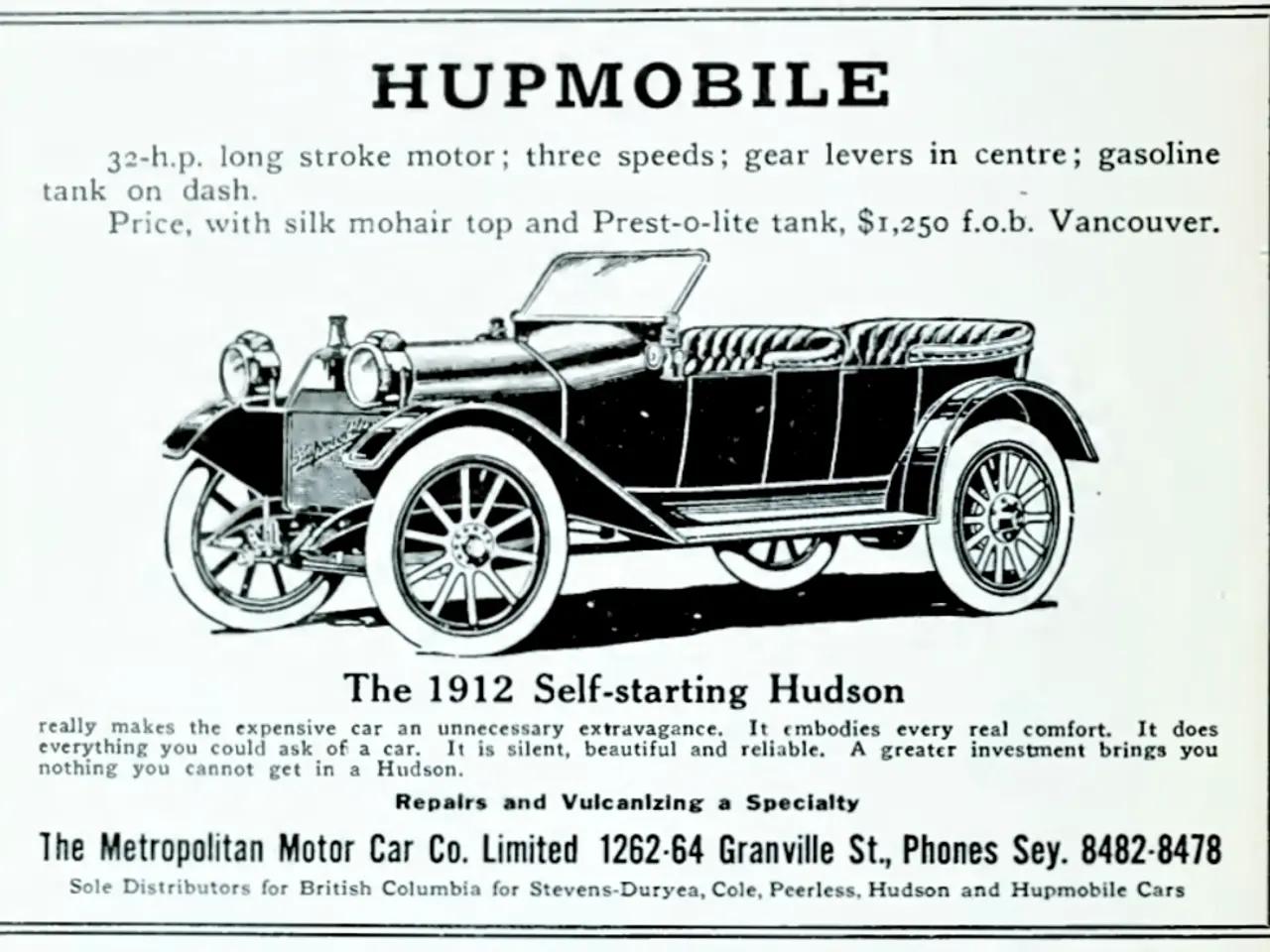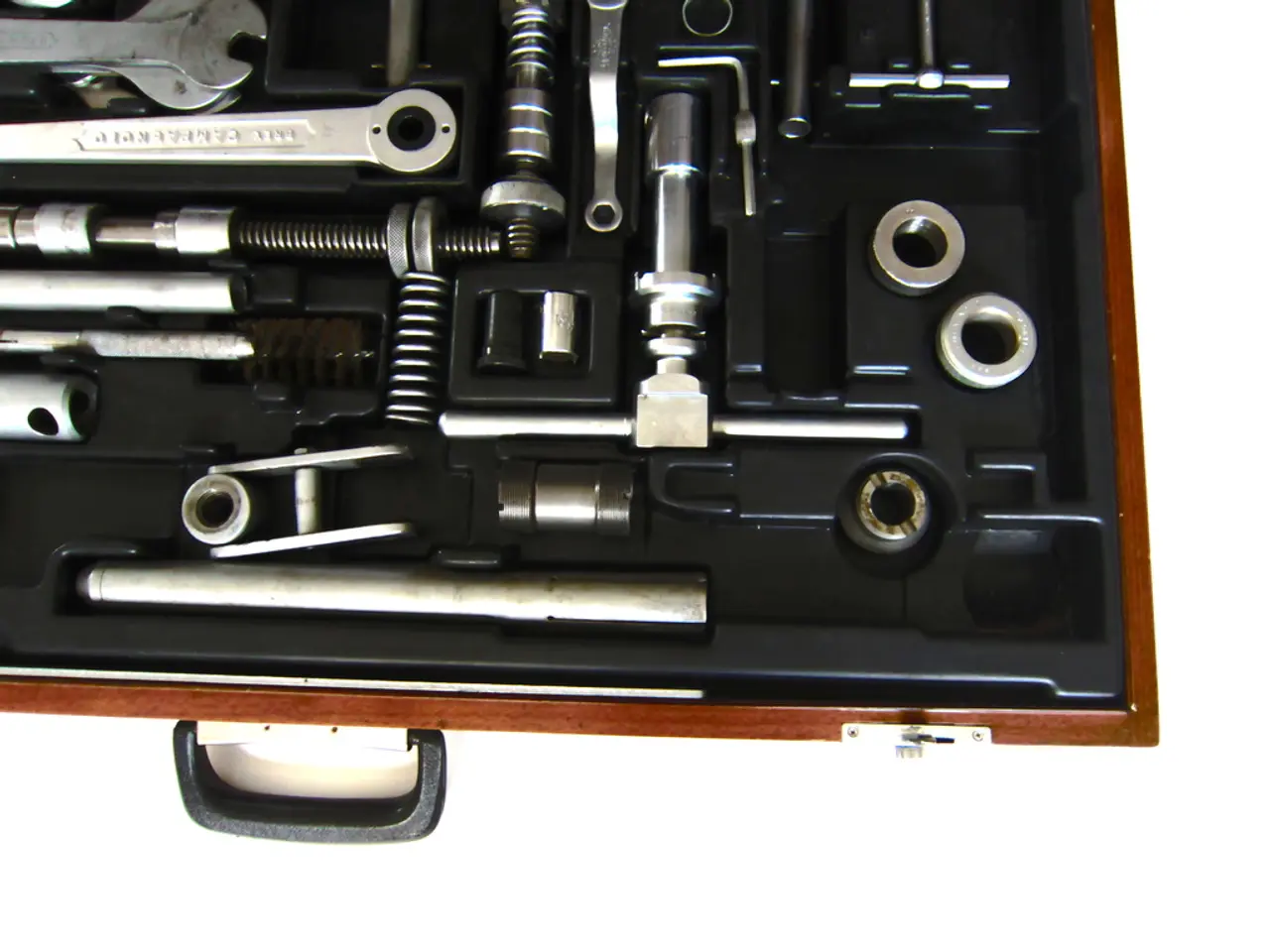Electric Vehicles Account for 28.6% of New Vehicle Sales in Germany, Internal Combustion Engines Leading the Top Three
In a notable shift, electric vehicles (EVs) are making a substantial impact on the German automotive market. As of mid-2025, battery electric vehicles (BEVs) account for around 18.4% of new car registrations, with plug-in hybrids (PHEVs) contributing another 10%, resulting in a combined plugin EV market share of approximately 28.4%.
This represents a significant increase compared to previous years. In June 2024, the BEV share stood at around 14.6%, while PHEVs accounted for 5.2% of new car registrations. The market's evolution has been strong despite challenges, such as the cancellation of BEV purchase incentives in late 2023.
Initially, the government's decision to halt electric car subsidies caused a dip in EV sales. However, the market has rebounded strongly since then. In the first half of 2025, German car manufacturers produced a record 635,000 BEVs, representing about one-quarter of total car production in Germany. New registrations continued their upward trend in July, though still below prior record levels.
The growth in EV registrations in Germany has been robust, rising by 35.1% in the first half of 2025 compared to the same period in 2024, despite the lack of state subsidies for private buyers during that time. This growth outpaces some other European countries like France, which experienced a decline, highlighting Germany’s strong EV momentum.
Looking ahead, the current government has promised new purchase incentives, which could further support market growth. The contraction of the overall new car market (about 5% year-on-year) also influences percentage shares, with EV shares partly benefiting from that market shrinkage.
Competitive dynamics within the EV market are also reshaping brand leadership. Tesla's sales in Germany dropped sharply in July 2025, with a 55% decline, while competitors like BYD surged, reflecting evolving consumer preferences and competition that shapes the market beyond just incentives.
In summary, the German EV market is showing a resilient and growing trend, transitioning beyond reliance on subsidies, driven by technology, emission regulations, and evolving consumer demand. Combined EVs have been ahead of petrol-only sales for 5 of the 7 months in 2025 and are expected to stay ahead in the future. The Volkswagen Group, BMW Group, Stellantis, and Ford are among the top players in the German EV market, with Volkswagen leading the BEV market. The ID.3 is the best-selling BEV in Germany, and the Volkswagen ID.7 followed in second place in July 2025. The year-to-date cumulative combined EV share is 27.8%, with 17.8% for BEVs and 10.0% for PHEVs.
- The German automotive market, traditionally dominated by petrol-only cars, is witnessing a significant shift, as electric vehicles (EVs) account for around 27.8% of the market, with the Volkswagen Group leading the BEV market.
- The evolution of the German EV market is influenced by various factors, including technology advancements, emission regulations, and evolving consumer demand, rather than relying solely on subsidies.
- Despite the cancellation of BEV purchase incentives in late 2023, the EV market has demonstrated resilience, with new registration numbers continuously on the rise, and even outpacing growth in France.
- Besides traditional players like the Volkswagen Group and BMW Group, new competitors such as BYD are emerging in the German EV market, reflecting changing consumer preferences and competition that shaped the market beyond just incentives.




